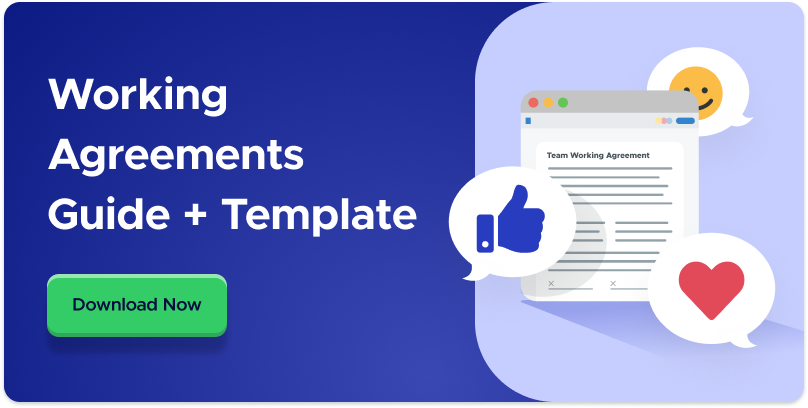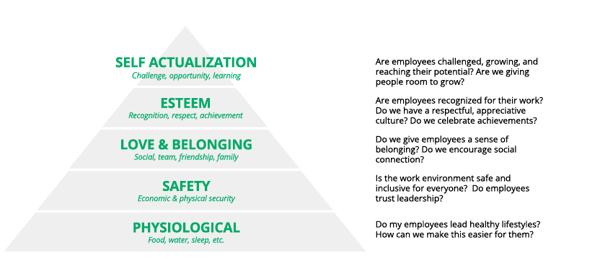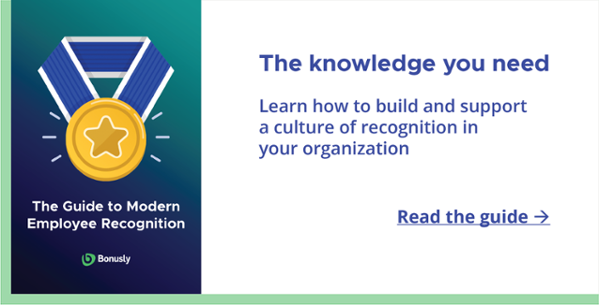Kinh Nghiệm Hướng dẫn What practical steps can a manager take to motivate employees to increase their effort? 2022
Bùi Thanh Tùng đang tìm kiếm từ khóa What practical steps can a manager take to motivate employees to increase their effort? được Update vào lúc : 2022-11-04 17:14:05 . Với phương châm chia sẻ Bí quyết Hướng dẫn trong nội dung bài viết một cách Chi Tiết 2022. Nếu sau khi tham khảo nội dung bài viết vẫn ko hiểu thì hoàn toàn có thể lại Comments ở cuối bài để Admin lý giải và hướng dẫn lại nha.Nội dung chính Show
- 1. Recognize great work2. Set small, measurable goals3. Celebrate results4. Encourage teamwork5. Stay positive6. Stay fueled7. Take regular breaks8. Stay healthy9. See and share the big picture10. Be transparent11. Provide clarity12. Envision and share positive outcomes13. Find purpose14. Loosen the reins15. Provide a sense of security16. Power pose17. Offer small, consistent rewards18. Change the scenery19. Practice and promote mindfulness20. Have fun!Bravo, you made it through the list! 👏What are 5 techniques for increasing employee motivation?What are 4 steps to motivating employees?What are the 12 steps to motivate employees?What are the best ways to motivate employees?
Everyone has weeks where you check off everything on your to-do list with pleasure—and weeks where you’d really rather be anywhere but work.
A little daydreaming never hurt anyone. 🌴🍹
It’s totally normal for employees to face dips in motivation, but it becomes a problem when your colleagues are consistently disengaged. In fact, Gallup recently reported that employees who are not engaged cost the world $7.8 trillion in lost productivity.
Employees who are not engaged or who are actively disengaged cost the world $7.8 trillion in lost productivity, according to Gallup's State of the Global Workplace: 2022 Report. That's equal to 11% of global GDP.
That's why we gathered some great tips from experts on how to motivate your employees, day in and day out.
These tips aren't specific to any industry, and most of them are either low or no cost. They can be applied in small establishments, franchises, startups, and Fortune 500 companies.
Share these ideas with your team! Download our guide 20 Simple Ways to Increase Motivation in the Workplace!
Let's get started with one that has the potential to change everything: recognition.
1. Recognize great work

One of the most important factors that contribute to employee motivation is how often their hard work gets recognized. 70% of employees say that motivation and morale would improve massively with increased recognition from managers. After all, if an employee produces exceptional results but their hard work isn't recognized, why would they continue to be a high-performing employee?
Bonus points: there are other surprising benefits of employee recognition including improved working relationships, employee engagement, retention, and even empathy. 💚
It's not just important to recognize great work. How you recognize your team's contributions has a significant impact. Employee recognition shouldn’t just be an annual bonus the end of the year—it should be meaningfully and frequently given.
Meghan M. Biro shared excellent advice on effective recognition in a TalentCulture post. Here's one of our favorite tips:
Money is appropriate much of the time, but it’s not the only—or even the most effective—motivator. Treat employees as valued team members, not as numbers.
2. Set small, measurable goals

We've all had projects that just drag on and on, and seem to never end. It can be demoralizing to be stuck in a rut, which is why seeing how you've made visible progress feels so good. It's also a clear indicator that our work is making a difference.
We met with Walter Chen, co-founder of iDoneThis, who shared some great insights into the importance of clear goal-setting and tracking progress. You can check out full the interview here.
Setting clear, achievable goals provides a real boost of motivation each time one is conquered—and it keeps teams on the right track. You can magnify these effects by taking the next step and celebrating those achievements.
3. Celebrate results

Part of what makes setting small and measurable goals so important is that it provides plenty of opportunities to celebrate your team’s hard work.
This doesn't mean you need to give a standing ovation to every employee who made it to work on time—but it is crucial to let everyone know exactly how (and how much) each of their contributions moves the organization forward.
Be specific in your applause. Don't just tell Marie "good job." Don't even stop "great job on the new email chiến dịch!" Applaud her success and when you do, tie her to the greater picture. For example: "Great job on that new email chiến dịch—it’s going to really grow our community and nurture our customer pipeline."
Want our newest blog posts straight in your inbox? Sign up for our bi-weekly newsletter!
4. Encourage teamwork
Teamwork is one of the greatest motivators out there. Knowing that your colleagues have your back and are your cheerleaders is an amazing feeling. When your motivation dips, your teammates are right there with you, rooting for you as you complete your next project. 🎊
In fact, 54% of employees say a strong sense of community (think: awesome coworkers, celebrating milestones, working toward a common mission) was a big reason they have stayed an organization.
One of the best ways to encourage teamwork is to start the foundation with a working agreement. Working agreements are guidelines created by a team to set group expectations, provide ways to collaborate, and establish a positive team atmosphere.
Download our không lấy phí working agreement template to boost motivation on your team.

5. Stay positive
Let’s be real—we’re a little suspicious of people who are happy all the time. 🤖
Negative emotions have their place, and some really good organizational changes can stem from having tough conversations. However, it's important to find ways to inject positive experiences into your team's interactions to create a net positive workplace.
Why? Because it’s actually a competitive advantage to have happy employees. Research shows that happy employees outperform their competition by 20% and generate 37% greater sales. 🤑
It turns out that happiness and positivity play a greater role in the success of your business than you'd ever imagine. If you're not fully convinced yet, take a moment to view this hilarious and fascinating presentation by psychologist Shawn Achor, explaining why:
A simple shift in bias toward positivity and happiness can have an immediate impact on your work experience and relationships, which are major factors in success, motivation, engagement, and productivity.
6. Stay fueled
It's hard to stay focused and driven when you're hangry. That's why it's so important for everyone to stay fed, hydrated, and in some cases, caffeinated. ☕️
Unfortunately, it's common for employees to become so busy that they can barely squeeze in time for lunch. That's not great for their health and even worse for their productivity. Not convinced? Read more on food's crucial role in employee well-being and engagement.
Keeping healthy snacks around the workplace—or providing a food stipend for remote employees— is an easy way to help your team maintain energy levels throughout the day. The cost of providing them will likely be offset by your team's increased productivity.
If you don't have the time or resources to manage this on your own, there are some great services that can help you keep your office stocked with healthy snacks. Our friends Caroo will even drop a curated box of healthy snacks right your company's or your employees' front door. When the Bonusly team was working in an office, we'd get a Fruit Guys delivery every week. It was a godsend 3 p.m. or whenever we needed some fuel to power through the rest of the day!
Tip! If you want to motivate remote employees, Caroo offers custom care packages that you can curate with company swag, home office gifts, and healthy snacks to send a little love their way!
7. Take regular breaks

Banging your head against a problem for three hours is rarely productive. Stepping back and taking a moment to recalibrate isn't just helpful in staying motivated—it's also important to your health.
Sitting all day isn't good for you, and neither is working nonstop. Taking a short break every hour or two can have a positive effect on both your mind and body toàn thân, especially for remote workers. Don't forget to get up from your desk and grab some fresh air!
Get up, stretch your legs, rest your eyes, and come back to work with a refreshed mind and body toàn thân.
Watch this: Beat WFH burnout with these 6 ways to keep teams engaged
8. Stay healthy

This brings us to our next topic: staying healthy. As we learned in our interview with Button's Stephen Milbank, sharing is caring, but not if what you’re sharing is germs. 😷
When you’re ill, take a sick day! It's unlikely that you'll be getting any of your best work done when you can hardly hold your head up, and not taking the time to rest will only prolong your sickness and prevent your body toàn thân from recovering.
Make sure the policies you're instituting aren't keeping people from taking the time they need to stay healthy. Think about the way you approach time off, medical benefits, and employee wellness. The stress and frustration from worrying about taking sick time can lead to disengagement and cost companies across the world billions of dollars each year.
A generous time-off policy or options for more flexible schedules or remote work might seem expensive face value, but it can actually save your company quite a lot of money in lost productivity, poor attendance, and suboptimal engagement.
9. See and share the big picture
A large part of understanding the purpose behind your work is seeing how it fits into the larger picture. You can help boost motivation in the workplace by ensuring your team understands how each of their efforts impacts the organization, customers, and the community.
Completing a task usually provides a small sense of accomplishment, but knowing how that work helped others is the real antidote to disengagement.
Need more proof? Check out Zach Mercurio's talk on meaningful work:
[embed]https://www.youtube.com/watch?v=hqTJcev7OLY[/embed]
10. Be transparent
Every relationship, including work relationships, is built on trust. Defaulting to transparency is one of the best ways to encourage an atmosphere of trust between you and your team and a team that trusts you will be more motivated and engaged with their work.
Transparency also helps ensure that everyone is working with the same information. That in itself can benefit the team.
11. Provide clarity
In order to be motivated about your work, it’s crucial that you actually understand what your goals and objectives are. For many employees, that understanding starts with transparency in the workplace and ends with clarity. Without clarity, transparency begins to lose its effectiveness and motivational power.
Make sure you're giving everyone a clear and concise mission they can get motivated about in the first place because it's nearly impossible to invest genuine motivation into something you're unaware of, or confused about.
12. Envision and share positive outcomes
It's easier to achieve success when you can envision it. Professionals of all types, from athletes to musicians and CEOs, all practice this technique to improve their motivation. Luckily, if you're providing a clear objective, you're already more than halfway there.
Help the team understand what it would mean to achieve that objective. When someone makes real progress toward that objective or outcome, share that progress as a source of motivation for everyone.
13. Find purpose

Although it's commonly stated that millennial employees are motivated by purposeful work, that's really true of most employees. We met with Imperative's Arthur Woods, who explained why purpose is a vital factor in employee motivation, and how to help share and express that purpose.
Erica Dhawan echoed Arthur's advice in an article about motivation she wrote for The Muse. She explains why it's so important to take time to explain the purpose behind the work you do:
Another key to staying motivated is knowing that the work you’re doing makes a difference in some way—recognizing the impact you’re making on your clients, company, or the world.
14. Loosen the reins
Autonomy and flexible work schedules are incredibly effective motivators. Giving employees more agency around when and how they get their work done can actually improve their efficiency, and help keep them motivated.
In her article for Monster.com, Roberta Matuson provides a great framework for getting started on the path of employee autonomy:
Tell your employees what needs to be done by what deadline; allow them to decide when they will do the actual work. For some, that may mean coming in early; for others that might involve working on the weekend.
The key here is that you're giving employees the freedom to work on their projects when their motivation is strongest, not just when they're in the workplace.
Giving employees more control over their work also helps eliminate one of the worst enemies of motivation in the workplace: micromanagement.
The key to flexibility? Embracing a hybrid work culture. Read our Complete Guide to Hybrid Work Strategy
15. Provide a sense of security
We're not talking about hiring a bouncer for your office (although you should make sure your employees feel safe your workplace!). We’re talking about employees feeling secure enough to show their full selves work.
Psychological theory suggests that there is a hierarchy of basic needs that people require before they can be motivated to reach their full potential. Security falls right beneath physiological needs like food and water.

Once employees feel secure, they're more likely to be motivated to reach and further stretch their potential.
16. Power pose

Your posture not only says a lot about your motivation levels—it can actually impact them. Amy Cuddy gave an outstanding TED presentation about what your own body toàn thân language can tell you, and how it affects your mood, your work, and your interactions with others.
Take a moment to think about your own posture, and the postures you're seeing around the workplace. What are they saying? If what they're saying isn't positive, try experimenting with different postures, and see how they impact your overall motivation.
17. Offer small, consistent rewards

Rewarding employees for their hard work is a motivational rule that nearly goes without saying. However, there are several ways to go about doing that, and some are more effective than others.
Annual bonuses are a common way many employers reward employees for their hard work. Unfortunately, they don't often provide the motivation they're designed to. An annual bonus perceived as routine, disappointing, or unfair can even damage motivation in the workplace.
Providing smaller, more consistent rewards is a great way to boost motivation consistently over time.
Need some reward ideas? Download our massive list of Creative Reward Ideas!
18. Change the scenery
Sometimes a small shift in scenery can provide a big shift in motivation. If it's possible, think about how the environment your team works in impacts motivation. If there aren't many sources of natural light coming in, it might be valuable to step outside together from time to time.
Spending even a few moments in different surroundings can provide a new perspective, and often a noticeable boost in motivation. Consider taking your team on an offsite or retreat, and notice how their spirits could lighten after a day working outside of the office. ☀️
19. Practice and promote mindfulness
 Taking time out of your day to slow down and practice mindfulness might sound like it would negatively impact productivity, but in many cases, the opposite is true.
Taking time out of your day to slow down and practice mindfulness might sound like it would negatively impact productivity, but in many cases, the opposite is true. Many of us work in jobs where stress is a matter of course, but as the Harvard Business Review staff explains in their article Mindfulness in the Age of Complexity, "Stress is not a function of events; it’s a function of the view you take of events."
Embracing mindfulness work can improve productivity and motivation by providing the perspective we need to see that.
20. Have fun!
Not every task work is going to feel like a day Six Flags. That's okay. What's not okay is having a team that feels like every day is a slog. You don't need a ping pong table or a kegerator in your office to make work fun. Find little bits of fun in everyday activities, and focus on what it is that makes working in your organization great.
You and your team will be amazed how motivating a little bit of fun can be.
Bravo, you made it through the list! 👏
It seems like you’re really motivated to improve motivation your workplace. Your team is lucky to have someone who cares about them and wants to help them be more meaningfully engaged with their work. 😍
If you'd like to share these ideas with your team (or just have them all neatly summarized in one place!), tải về our PDF, 20 Simple Ways to Increase Motivation in the Workplace.
At the start of this list, we mentioned that 70% of employees believe their motivation and morale would improve significantly if they received more recognition from their managers. The truth is, employee recognition doesn’t always have to be top-down in order to be motivating.
When you empower everyone on your team or in your organization to give each other frequent, timely, visible, specific, inclusive, and values-oriented recognition, those sparks of motivation can come from anywhere. To learn more about the impact peer-to-peer recognition can have on motivation and how you can facilitate it your organization, don’t miss our Guide to Modern Employee Recognition 👇

Originally published on October 26, 2022 → Last updated November 3, 2022

George is dedicated to strengthening organizational cultures with thoughtful leadership and frequent recognition. George formerly managed content and community Bonusly.
Bonusly is a fun, personal employee recognition and rewards platform that helps people feel engaged and successful work. ✨ Learn more about us.
What are 5 techniques for increasing employee motivation?
Types of motivational techniques. Ask for employee input. Regularly survey employees for their satisfaction. ... . Offer personal enrichment programs. ... . Validate good work. ... . Set intermittent goals. ... . Celebrate milestones and achievements. ... . Radiate positivity. ... . Create a mentorship program. ... . Create a comfortable and inspiring workspace..What are 4 steps to motivating employees?
4 steps to motivate your workforce. Provide clear expectations.. Provide regular recognition and praise.. Provide a clear understanding of the big picture.. Provide a caring company attitude..What are the 12 steps to motivate employees?
Here are 12 fantastic ways you can use to motivate your employees:. Create a friendly work environment. ... . Acknowledge employees' achievement. ... . Rewarding employees. ... . Positive communication is the key. ... . Encourage friendly competition. ... . Have a meaningful and worthwhile goal. ... . Create a career path. ... . Be a leader worth following..What are the best ways to motivate employees?
“The best way to motivate your employees is to figure out what makes them tick and align their personal and professional goals with their role in your company as best you can. To do this, you need to check in with each employee frequently and ask them questions about how things are going. Tải thêm tài liệu liên quan đến nội dung bài viết What practical steps can a manager take to motivate employees to increase their effort?